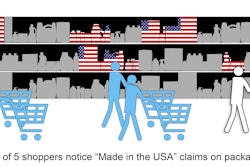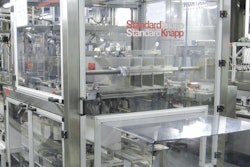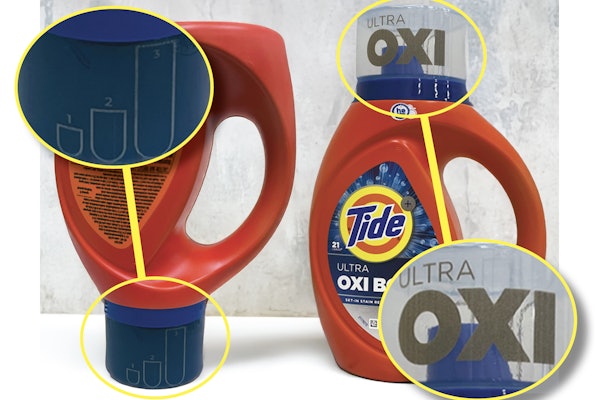The 20,000m2 plant, which is expected to be fully operational by 2014, will initially employ about 200 people, and have the capacity to manufacture 90 million sterile ampoules and more than two billion tablets per year. This would enable the company to meet local demand for Cardiomagnyl, a drug with multiple indications including the treatment of severe pain; Actovegin, a drug indicated in the treatment of craniocerebral traumas, arterial angiopathy, and mucous membrane lesions; and calcium. According to the Russian government: "Takeda is one of the flagship companies in Yaroslavl's pharmaceutical cluster and is the first major international pharmaceutical company to invest in a new world class manufacturing facility in the region.” Furthermore, the company plans to outpace the Russian pharmaceuticals market by having an annual growth rate of 15% between 2012 and 2016. The market, which recorded sales of about $14.7 billion in 2011 and is currently the 11th largest pharmaceutical market in the world based on sales, is expected to grow at an annual growth rate of 11% in the same period.
Having local medicine manufacturing capacity is increasingly important in Russia, and Takeda's announcement reinforces the growing presence of pharmaceutical companies in the country. Despite earlier fears that the Russian government's implementation of measures aimed at reducing the country's reliance on imported drugs from about 80%, and giving preference to domestically-manufactured drugs in its national reimbursement system, would impede the interest of foreign pharmaceutical and biotech companies in its economy, recent evidence allays such concerns. In July 2012, Novartis announced a range of products that will be produced at its future $150m Russian plant, which is currently under construction close to St. Petersburg, and said its aim since 2010 has been to invest $500m in Russia by 2015 in an attempt to strengthen its position in the country. In addition, Teva Pharmaceuticals is on the verge of commencing the construction of a factory, which could be worth up to $100m, in Yaroslavl later this month. The new facility, which would specialize in the production of tablets for the treatment of cardiovascular, neurological and psychiatric diseases, is expected to launch in 2014.
GlobalData believes that these events are positive results of Russia's “Pharma 2020” plan and could potentially be a sign of good things to follow. The strategy, which involves focusing on local manufacturing and ensuring that foreign drug makers set up local manufacturing facilities before selling their drugs, encouraging R&D in designated clusters such as the Yaroslavl pharmaceutical cluster, and public-private partnerships, could potentially boost the country's economy through job creation, intellectual property transfer, and growth of its local pharmaceutical industry. Much has already been said about why pharmaceutical and biotech companies are strengthening their positions in emerging markets such as China, India, and Russia, including access to cheaper manufacturing, huge growth potential, and blockbuster drugs going off patent. With companies such as Teva, Novartis, and Takeda yielding to Russia's demands by setting up local manufacturing facilities with expectations that the benefits would be worth the risk, other players who have previously been skeptical about the Russian pharmaceutical market and its government policies might be tempted to re-think that attitude. However, in an industry where time is very valuable and playing catch-up is something pharmaceutical companies hate to do, these companies might not have much choice should they also decide to set up shop in Russia.
Having local medicine manufacturing capacity is increasingly important in Russia, and Takeda's announcement reinforces the growing presence of pharmaceutical companies in the country. Despite earlier fears that the Russian government's implementation of measures aimed at reducing the country's reliance on imported drugs from about 80%, and giving preference to domestically-manufactured drugs in its national reimbursement system, would impede the interest of foreign pharmaceutical and biotech companies in its economy, recent evidence allays such concerns. In July 2012, Novartis announced a range of products that will be produced at its future $150m Russian plant, which is currently under construction close to St. Petersburg, and said its aim since 2010 has been to invest $500m in Russia by 2015 in an attempt to strengthen its position in the country. In addition, Teva Pharmaceuticals is on the verge of commencing the construction of a factory, which could be worth up to $100m, in Yaroslavl later this month. The new facility, which would specialize in the production of tablets for the treatment of cardiovascular, neurological and psychiatric diseases, is expected to launch in 2014.
GlobalData believes that these events are positive results of Russia's “Pharma 2020” plan and could potentially be a sign of good things to follow. The strategy, which involves focusing on local manufacturing and ensuring that foreign drug makers set up local manufacturing facilities before selling their drugs, encouraging R&D in designated clusters such as the Yaroslavl pharmaceutical cluster, and public-private partnerships, could potentially boost the country's economy through job creation, intellectual property transfer, and growth of its local pharmaceutical industry. Much has already been said about why pharmaceutical and biotech companies are strengthening their positions in emerging markets such as China, India, and Russia, including access to cheaper manufacturing, huge growth potential, and blockbuster drugs going off patent. With companies such as Teva, Novartis, and Takeda yielding to Russia's demands by setting up local manufacturing facilities with expectations that the benefits would be worth the risk, other players who have previously been skeptical about the Russian pharmaceutical market and its government policies might be tempted to re-think that attitude. However, in an industry where time is very valuable and playing catch-up is something pharmaceutical companies hate to do, these companies might not have much choice should they also decide to set up shop in Russia.
Companies in this press-release

























